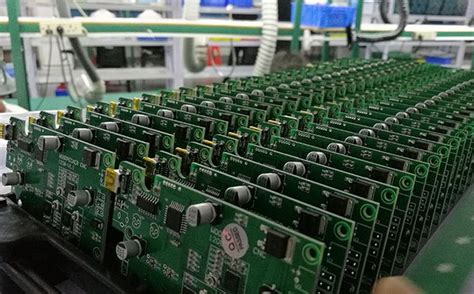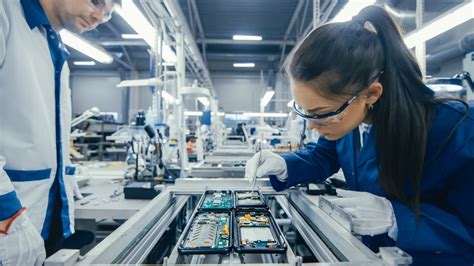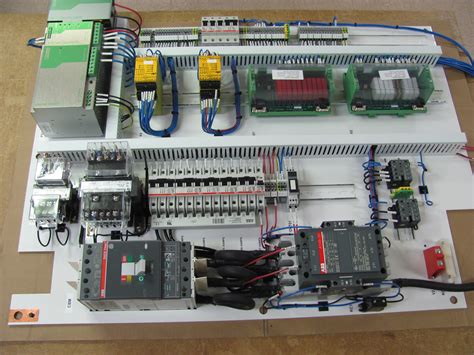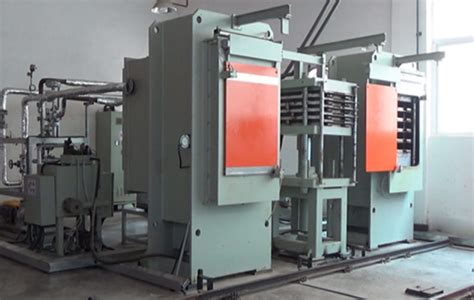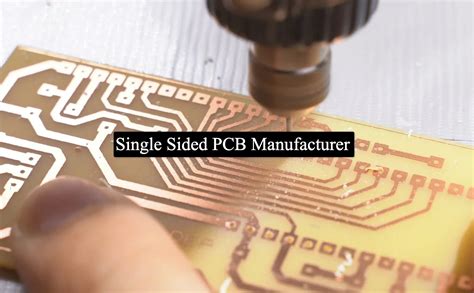Efficient Turnkey PCB Assembly Solutions for Your Projects
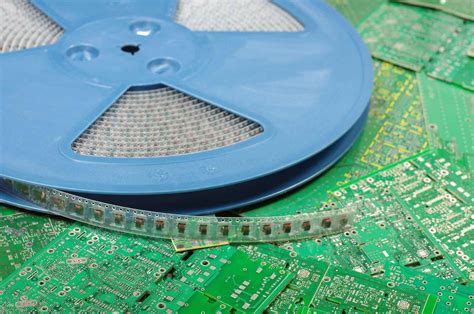
Key Takeaways
Understanding turnkey PCB assembly solutions is essential for anyone looking to optimize their electronic projects. These services not only encompass the complete PCB assembly process—from design to final testing—but also integrate several critical aspects that contribute to overall effectiveness. By utilizing a comprehensive PCB assembly strategy, teams can significantly enhance productivity and achieve consistent results.
One of the standout features of turnkey solutions is their remarkable capacity for streamlining workflows. As organizations embrace this efficient approach, they can experience substantial time savings and a pronounced reduction in logistical complexities. Companies opting for turnkey PCB assembly can leverage specialized expertise, which often leads to accelerated production timelines. Moreover, with reduced cycle times and fewer intermediaries involved, the costs associated with PCB production can be minimized, allowing resources to be allocated more strategically.
While exploring these services, it’s essential to recognize that quality control remains the backbone of any successful PCBA project. Effective quality management ensures that potential defects are identified early in the process, thus safeguarding against costly errors down the line. As you navigate your next project, bear in mind:
"Investing in quality at every step of your pcb assembly process is an investment in your final product."
By embracing a holistic approach that prioritizes quality alongside efficiency and cost-effectiveness, businesses can achieve their design goals with greater reliability and precision.
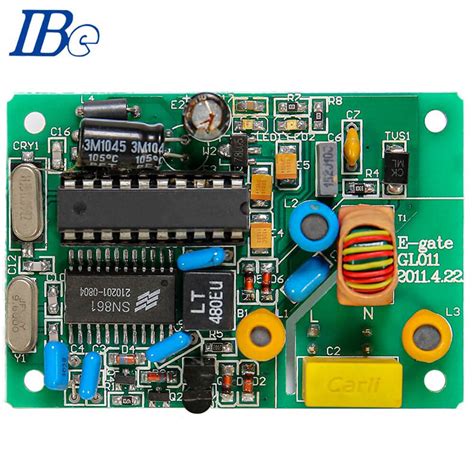
Understanding Turnkey PCB Assembly: A Comprehensive Overview
Turnkey PCB assembly (PCBA) has become an essential service for businesses looking to optimize their electronics manufacturing processes. This approach provides a complete solution where a single provider manages all phases of production, from design to assembly, and even testing. This means companies can focus on their core competencies while relying on experienced partners for their PCB assembly needs.
The seamless integration of various stages in the assembly process leads to significant efficiency gains. For example, the ability to source components and fabricate PCBs in one streamlined operation minimizes the lead time and reduces logistical complexities often associated with managing multiple suppliers. In addition, a uniform quality assurance protocol established by the contractor ensures that each component meets stringent requirements before moving on to assembly.
A significant aspect of understanding turnkey PCB assembly is recognizing how it can be tailored to suit varying project demands. With diverse industries requiring specific standards and technologies, providers often offer customizable solutions that cater specifically to these needs. Furthermore, this flexibility can lead to cost reductions as bulk purchasing of materials and components may result in better pricing strategies.
The effectiveness of these solutions is particularly clear when exploring the importance of collaboration between design engineers and assembly experts early in the project lifecycle. This partnership minimizes errors and unanticipated expenses that may arise from miscommunications later in production.
| Advantages | Description |
|---|---|
| Cost-Effectiveness | Reduced overhead by minimizing multiple suppliers |
| Efficiency | Streamlined processes save time |
| Quality Assurance | Consistent quality control throughout |
| Flexibility | Customization options available |
| Focus on Core Competencies | Allows clients to concentrate on their main business activities |
By leveraging these essential benefits offered by turnkey PCB solutions, businesses can enhance their operational efficiency, ensuring that projects are completed not only faster but also at a higher quality level.
Key Benefits of Turnkey PCB Assembly for Modern Projects
In today’s competitive landscape, turnkey PCB assembly has emerged as a vital solution for organizations aiming to optimize their project outcomes. The primary advantage of utilizing turnkey solutions is their ability to simplify the overall supply chain process. By integrating various stages of pcb assembly—from design to manufacturing and testing—companies can significantly enhance their operational efficiency. This holistic approach not only streamlines workflows but also facilitates faster time-to-market, allowing businesses to respond quickly to evolving market demands. Furthermore, pcba services often lead to substantial cost savings by reducing overhead expenses associated with managing multiple suppliers and logistics. The centralized management of projects ensures that all components are aligned with the initial specifications, mitigating risks related to product quality and compliance. By embracing turnkey PCB assembly, organizations can achieve seamless execution of their projects while maintaining focus on innovation and quality—two critical elements that drive success in any modern endeavor.
Streamlining Your Workflow: The Efficiency of Turnkey Solutions
In today’s fast-paced technological landscape, efficient turnkey PCB assembly solutions are becoming increasingly vital for streamlining your workflow. By integrating all aspects of the PCB assembly process into a single, cohesive solution, companies can significantly enhance their operational efficiency. One of the core advantages of choosing turnkey solutions is the reduction in time-to-market. Since every component—from design to manufacturing—is managed under one roof, businesses can avoid the delays often associated with coordinating multiple suppliers. Furthermore, pcba services offer a smoother communication channel, ensuring that any issues are swiftly addressed and resolved without unnecessary interruption.
The overall cost of production tends to decrease as well; without the need to handle separate contracts and suppliers, companies can save on both administrative costs and overheads. Additionally, these solutions tend to have standardized procedures that enhance reliability and quality across projects. With a dedicated focus on delivering exceptional results while maintaining strict quality controls, turnkey PCB assembly provides an opportunity for businesses to focus more on innovation and less on logistics. Embracing these advancements not only boosts productivity but also empowers organizations to reach their design goals more effectively than ever before. As technology evolves and project requirements grow more complex, integrating efficient turnkey options will be paramount in redefining success in the pcb assembly sector.
Cost Reduction Strategies Through Effective PCB Assembly
In the competitive landscape of electronics manufacturing, implementing cost reduction strategies through effective PCB assembly (also known as PCBA) is crucial. One of the primary advantages of a turnkey solution is the integration of multiple processes, which streamlines operations and minimizes unnecessary expenditures. By outsourcing to specialized providers, companies can leverage their expertise, state-of-the-art technology, and economies of scale, reducing labor costs and material waste. For instance, a consolidated procurement process can allow for bulk purchasing of components at discounted rates, directly impacting the overall project budget. Furthermore, adopting lean manufacturing principles within the PCB assembly process eliminates redundancies and enhances overall efficiency. The application of advanced automation technologies in PCBA not only accelerates production cycles but also decreases the likelihood of human error, leading to significantly lower rework costs. Ultimately, by focusing on these effective strategies in turnkey PCB assembly, businesses can achieve significant cost savings while maintaining high standards of quality and performance in their electronics projects.
The Importance of Quality Control in Turnkey PCB Projects
In the realm of turnkey PCB assembly, maintaining quality control is a critical factor that significantly affects the success and reliability of electronic projects. The two primary reasons for this are the complexity and precision required in the design and production phases. Each Printed Circuit Board Assembly (PCBA) demands meticulous oversight to ensure that every component is placed accurately, connections are secure, and the overall functionality meets specified standards. Inconsistent quality can lead to malfunctions, which might not only disrupt project timelines but also inflate costs due to necessary revisions or replacements. By emphasizing quality control, companies can streamline their processes: implementing regular inspections, standardized testing protocols, and leveraging advanced technology to monitor production stages. Furthermore, a commitment to quality in pcb assembly ensures that the end products are reliable, enhancing customer satisfaction and bolstering trust in the manufacturer’s capability. This focus on consistency transforms turnkey PCB projects into a more efficient endeavor—ensuring that time and financial investments yield maximum returns while mitigating risks associated with inferior quality.
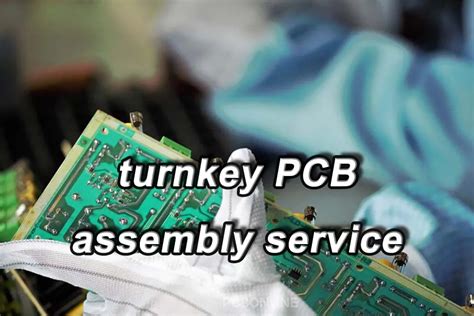
Navigating the Turnkey Assembly Process: Step-by-Step Guide
Navigating the turnkey PCB assembly process requires a clear understanding of the various stages involved, ensuring that each step aligns with project goals. The initial phase typically starts with defining the project requirements, where teams gather essential specifications for the PCB assembly or PCBA to meet design criteria efficiently. Following this, a detailed design review is conducted to identify any potential issues early, allowing for adjustments before production begins. Once the designs are finalized, sourcing components becomes crucial; it’s important to choose reliable suppliers who can provide high-quality components essential for effective PCBA. After securing all materials, the actual assembly process commences, involving precise soldering techniques and automated equipment to ensure accuracy and consistency in creating reliable circuits. Throughout this phase, constant communication between engineering and production teams facilitates timely adjustments and innovations that may arise during assembly. Finally, quality checks are integral at every stage — encompassing inspection procedures to verify that each turnkey PCB assembly meets rigorous industry standards before moving on to final testing phases. This comprehensive approach not only ensures seamless integration into greater systems but enhances overall project efficiency while maintaining a focus on delivering exceptional results in PCB assembly projects.
Enhancing Productivity with Innovative PCB Solutions
In today’s fast-paced technological environment, enhancing productivity in the realm of PCB assembly is paramount for businesses seeking to maintain a competitive edge. Innovative PCBA techniques not only streamline production processes but also contribute significantly to overall project efficiency. By integrating cutting-edge technologies and methodologies, companies can achieve accelerated turnaround times, which is crucial for meeting tight deadlines. The adoption of advanced automation tools in the turnkey PCB assembly process minimizes manual errors, enhancing accuracy and consistency in manufacturing. Additionally, the seamless collaboration between design and assembly teams fosters a more cohesive workflow, enabling quicker iterations and responsiveness to changes. These improvements not only lead to reduced lead times but also help in optimizing resource allocation, thus trimming unnecessary costs. Moreover, with a focus on quality control throughout the assembly phase, businesses can ensure that their products meet rigorous industry standards while maintaining high levels of productivity. Embracing these innovative PCB solutions positions organizations to achieve their design goals effectively while responding adeptly to evolving market demands.
Future Trends in Turnkey PCB Assembly: What to Expect
As technology continues to advance, the landscape of turnkey PCB assembly (PCBA) is poised for significant transformation. One of the most notable trends is the integration of automation and artificial intelligence into the PCB assembly process. This shift not only enhances accuracy but also expedites production timelines, allowing for more efficient workflows. Furthermore, as demand for faster prototyping and lower production costs rises, turnkey solutions will increasingly focus on adaptability and scalability. Manufacturers will prioritize flexible design processes that can accommodate a variety of project requirements while maintaining high standards of quality control. In addition, sustainability has become a critical consideration; therefore, companies are expected to adopt eco-friendly materials and processes in PCBA to align with global efforts toward environmental responsibility. As these trends continue to evolve, companies that embrace innovative technologies and sustainable practices in their turnkey PCB assembly processes will be well-equipped to meet future challenges and customer expectations effectively. The commitment to quality assurance remains vital in this rapidly changing environment, ensuring that all assembled products meet rigorous industry standards while achieving design goals with optimal efficiency.
Conclusion
In today’s competitive landscape, leveraging turnkey PCB assembly services can significantly uplift your project outcomes. By opting for pcb assembly solutions, organizations can seamlessly integrate various stages of design, manufacturing, and testing under one umbrella. This comprehensive approach allows for faster turnaround times and minimizes the risk of miscommunication that often arises when handling multiple vendors. Furthermore, a crucial aspect of any successful assembly process is the unwavering commitment to quality. A focus on stringent quality control measures ensures that every pcba produced meets or exceeds industry standards, thus transforming conceptual designs into functional prototypes with remarkable accuracy. As we look ahead, the role of innovation within turnkey solutions will continue to evolve, offering even more robust tools that not only streamline operations but also deliver reliable products tailored to specific project needs. Embracing these strategies can empower teams to meet their objectives confidently and effectively.
FAQs
What is turnkey PCB assembly?
Turnkey PCB assembly refers to the complete process of designing, manufacturing, and assembling printed circuit boards (PCBs) in a single, comprehensive package. This service typically encompasses everything from sourcing components to final testing and delivery.
What are the benefits of using a turnkey solution for my PCB projects?
Utilizing a turnkey solution for pcb assembly can significantly simplify project management. It consolidates multiple tasks under one provider, reducing communication time, enhancing efficiency, and often leading to cost savings. Furthermore, it ensures that deadlines are met without compromising the quality of the final product.
How does turnkey PCB assembly streamline my workflow?
The turnkey PCB assembly process eliminates the need for separate suppliers and allows for synchronized operations. This integration speeds up each phase of development while minimizing delays caused by miscommunication among different vendors.
Can I reduce costs with turnkey PCB assembly?
Absolutely! Effective management of pcba projects through a turnkey approach can lead to lower labor and material costs. Since the entire process is handled by one company, overheads typically decrease, resulting in cost-efficient solutions for your projects.
What role does quality control play in turnkey PCB projects?
Quality control is critical in ensuring that each stage of the pcb assembly process meets industry standards. An emphasis on quality helps minimize defects and enhances product reliability while adhering to strict regulations.
For more information on streamlining your project with comprehensive solutions, please click here: Turnkey PCB Assembly Solutions.


